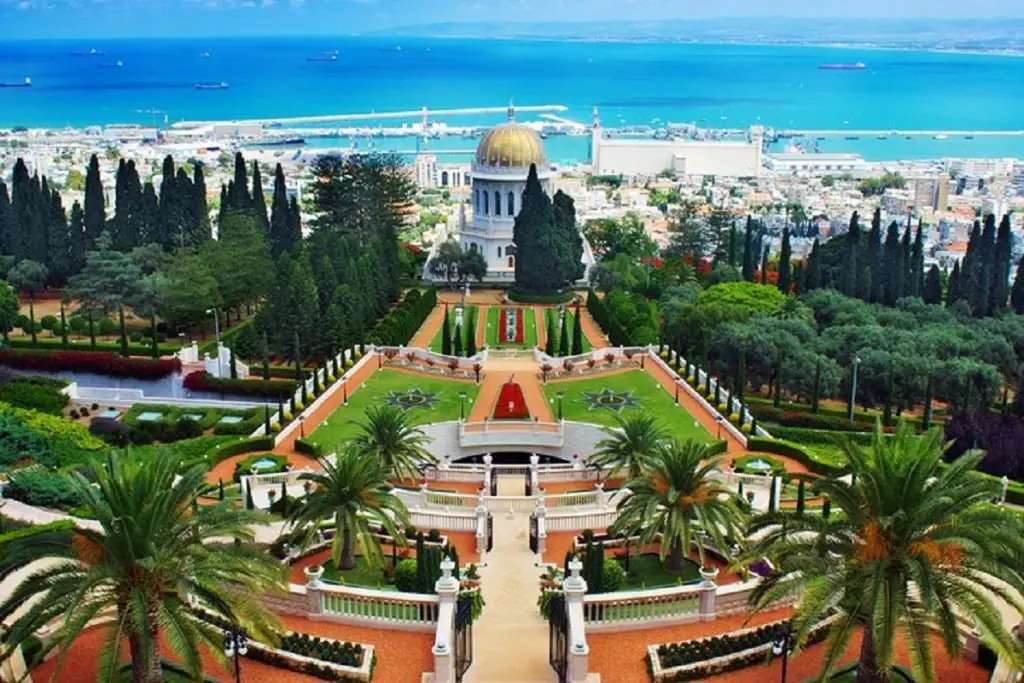The pursuit of happiness is a universal goal, yet the way happiness is experienced and achieved varies immensely across the globe. In recent years, the quest to quantitatively measure happiness has led to intriguing insights into what makes nations thrive emotionally and socially. This endeavor, complex as it is, attempts to rank countries based on the overall happiness of their citizens. Factors such as economic strength, social support, life expectancy, freedom to make life choices, generosity, and perceptions of corruption play crucial roles in determining these happiness rankings.
The 2024 World Happiness Report was released in March. For over ten years, the United Nations Sustainable Development Solutions Network has annually crafted the World Happiness Report. This detailed publication involves polling around 1000 people from each of the 146 countries surveyed, asking them to rate their life satisfaction on a scale from 0 to 10.
What is the Happiest Country in the World?
The 2024 World Happiness Report reveals that for the seventh consecutive year, Finland is ranked as the happiest country in the World. It leads the list, with Denmark, Iceland, Sweden, Israel, and the Netherlands closely following in this annual assessment, which was published on March 20, 2024. The survey evaluates countries based on the happiness levels reported by their citizens. The majority of the countries in the top 10, including Norway, Switzerland, and Luxembourg, are located in Europe. The report notes that the survey data from Israel was collected after the October 7, 2023 attacks but before the conflict intensified.
Australia is the only country besides Israel in the top 10 not from Europe, securing the 10th position. On the other hand, the United States saw a decline in its happiness ranking, falling to 23rd place from 15th the previous year. The United Kingdom also experienced a slight drop, moving down to 20th from 19th last year.
Related Read: Wealthiest Countries in the World
What are the Happiest Countries in the World in 2024
For those seeking travel inspiration and are intrigued by the prospect of visiting destinations where happiness abounds, the 2024 World Happiness Report lists the top 30 happiest countries in the World.
- Finland
- Denmark
- Iceland
- Sweden
- Israel
- Netherlands
- Norway
- Luxembourg
- Switzerland
- Australia
- New Zealand
- Costa Rica
- Kuwait
- Austria
- Canada
- Belgium
- Ireland
- Czechia
- Lithuania
- United Kingdom
- Slovenia
- United Arab Emirates
- United States
- Germany
- Mexico
- Uruguay
- France
- Saudi Arabia
- Kosovo
- Singapore
Top 10 Happiest Countries in the World in 2024
1. Finland

Finland consistently tops the charts as the happiest country in the world, a title it maintains in the 2024 World Happiness Report released in March. This Nordic nation is characterized by a strong sense of belonging and community, supported by deep and meaningful relationships. Its people enjoy a high degree of freedom and independence, which greatly enhances their quality of life. The Finnish government ensures a reliable social safety net, providing its citizens with a solid foundation of security.
Economically, Finland is in a strong position, which allows for significant social advancement. Being a member of the European Union offers Finns the remarkable benefit of free movement across 30 countries. These factors together secure Finland’s place as the world’s happiest country and serve as an invitation for others to learn from their model of happiness.
2. Denmark

For the sixth consecutive year, Denmark has secured second place, having previously led the rankings in the inaugural 2012 report, and again in 2013 and 2016. The authors of the report have observed that Nordic countries share common social and political frameworks and values. This similarity is a key reason why these nations consistently rank among the top 10 happiest countries in the World and often interchange positions on the happiness leaderboard.
The report highlights that Denmark excels in areas such as work-life balance, environmental quality, and healthcare. Denmark is also celebrated for its minimal wealth disparity, fostering a society where responsibilities and rewards are equitably shared. According to the report, societies that distribute both the challenges and advantages evenly tend to be happier.
Read More: Largest Country in the World
3. Iceland

Globally, countries are categorized into three groups: common-interest states, special-interest states, and weak states. Common interest states are recognized for their capability to implement a wide range of policies that enhance welfare and overall happiness. A key determinant of a country’s classification is its state effectiveness, which is assessed based on its proficiency in generating revenue, providing services, and its success in steering clear of repression, civil wars, and similar issues.
These factors are closely linked to the level of life satisfaction among citizens. Iceland, for instance, is identified as a common-interest state and exhibits an average life satisfaction score that is two points higher than that of weak states. The Nordic countries, including Denmark, Iceland, Finland, Norway, and Sweden, consistently achieve top rankings in both happiness and equality. This supports the understanding that equality plays a significant role in fostering overall life satisfaction.
4. Sweden

Sweden has climbed two positions in the happiness rankings, moving up from sixth place last year. Its consistently high rankings are attributed to its wealth, robust social support systems, and the transparency and integrity of its institutions. Sweden is noted for its exceptional work-life balance, highlighted by offering the most generous paid vacation allowance in the world—41 days. Additionally, new parents are entitled to up to 480 days of parental leave, receiving approximately 80% of their salary during this time.
However, the country does have a high tax burden, with personal income tax rates nearing 60%. These tax revenues, though, are invested back into society, funding universal healthcare, tuition-free university education, and a wide array of social programs designed to equip individuals with new skills and improve their employment prospects.
5. Israel

It may come as a surprise to see Israel ranking near the top of the UN Happiness Index despite the ongoing conflict with Gaza. The methodology behind this ranking involves averaging survey responses over the most recent three years, from 2021 to 2023, to determine the scores for each country. Experience, including during the COVID-19 pandemic, shows that a nation’s collective sense of empathy and solidarity, and thus its happiness levels, often increase in times of crisis.
Remarkably, since the inception of the index a decade ago, Israel has always maintained a position no lower than 14th. Considering Israel’s geopolitical challenges and its relatively small population of about 10 million, the question arises: How can its citizens rank so high in happiness? The answer lies in the multifaceted nature of happiness. Israel benefits from a rich cultural landscape and robust community networks, providing its people with a strong sense of belonging and the autonomy to pursue their personal aspirations.
6. Netherlands

In 2024, the Netherlands proudly secured the 6th position in the global happiness rankings, underscoring its continued commitment to fostering a high quality of life for its citizens. This achievement reflects the country’s comprehensive social support systems, exceptional healthcare, and education, alongside its celebrated work-life balance. The Dutch culture, with its deep-rooted values of tolerance and inclusivity, plays a significant role in the overall well-being and happiness of its people.
Environmental sustainability is also a priority, with extensive cycling paths and green spaces encouraging a healthy and active lifestyle. Furthermore, the Dutch economy remains strong, offering ample opportunities for employment and personal growth. These combined factors not only highlight the Netherlands’ success in creating a supportive and thriving environment for its inhabitants but also maintain its status as one of the happiest countries in the world in 2024.
Read Also: Safest Countries in The World
7. Norway

Norway, although not always at the very top, still stands as a bastion of happiness. The active participation of its citizens in the democratic process cultivates a strong community feeling. The country is known for its forward-thinking policies, commitment to gender equality, civil liberties, and comprehensive welfare system, all of which are key contributors to the happiness of its people.
The high quality of life in Norway, underscored by environmental cleanliness, access to pure water, and plenty of green areas, plays a significant role in boosting well-being. The stunning natural beauty of Norway, ranging from majestic fjords to untouched beaches, along with a culture that encourages outdoor activities, significantly adds to the nation’s overall happiness.
8. Luxembourg

Surrounded by France, Germany, and Belgium, Luxembourg is regularly listed as one of the happiest countries in the World, holding the ninth spot in the 2023 World Happiness Report. Its wealth is supported by a strong economy, a flourishing financial industry, and the presence of lucrative job opportunities from global companies.
The nation boasts a superior quality of life, characterized by outstanding healthcare and education services, as well as an excellent balance between work and leisure. Its high safety standards and welcoming approach to immigrants and minority groups further enhance Luxembourg’s attractiveness as a home for people of various origins.
9. Switzerland

Since clinching the top spot in the 2015 World Happiness Report, Switzerland has seen a gradual decline in its ranking. However, this does not mean the Swiss are unhappy; they are just not as content as they once were.
Nonetheless, Switzerland continues to epitomize a haven for happiness seekers. The country is renowned for its picturesque landscapes and pristine air, cutting-edge infrastructure, and top-notch educational offerings. It enjoys both significant wealth and equitable distribution. Switzerland’s commitment to producing chocolate and cheese instead of engaging in warfare also contributes to its peaceful reputation. The country has upheld a stance of neutrality and hasn’t participated in any wars since 1847. Yet, in a notable departure from its longstanding neutrality, Switzerland joined the European Union in levying sanctions against Russia following its invasion of Ukraine.
10. Australia

Australia has made a comeback to the top 10 in the World Happiness Report for the first time since 2018, even though its overall life evaluation score of 7057 has slightly decreased from last year’s 7095. This climb in rankings is partly due to New Zealand’s more significant drop in happiness, as it fell from the 10th position in 2023. The report highlights that happiness levels are notably lower among younger populations in both countries, with a tendency to increase with age, reaching the highest levels among the elderly.
Nonetheless, being listed among the top 10 happiest countries in the world is certainly an achievement. Australians have many reasons to feel fortunate, with high salaries, strong employment rates, and a high life expectancy. Additionally, their exceptional levels of altruism—evidenced by about 40% of the population engaging in volunteer work—further cement Australians’ status as contented and contributing members of their society.
Read More: Best Honeymoon Destinations in November
Conclusion
This exploration of the happiest countries in the world, the metrics that define them, and the challenges they face offer valuable insights into the multifaceted nature of happiness. The critiques and discussions surrounding happiness indices remind us of the complexity of measuring such a subjective experience and the importance of considering cultural and individual differences in our pursuit of well-being.
Happiness is an intricate blend of external circumstances and internal disposition, influenced by a multitude of factors ranging from economic stability to personal values. As societies and individuals, the pursuit of happiness is a continuous journey that requires a balanced focus on both systemic reforms and personal growth.
















[…] Related Read: Happiest Countries in the World […]
Comments are closed.